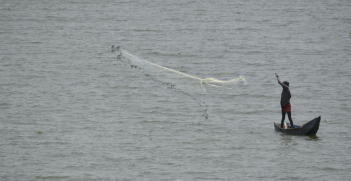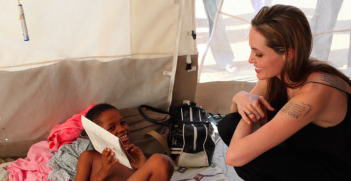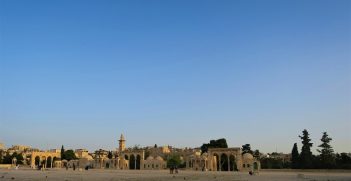The ICC at a Critical Juncture

The International Criminal Court is at critical juncture in its role as a pillar of international justice. The “never again” court established in 2002 has faced a mixed year of monumental cases, renewed hardships and backlash due to ongoing hostility to its African mandate.
The International Criminal Court (ICC) operates in a divided global political landscape which manifests as a lack of international and domestic cooperation, budgetary constraints and support from the UN Security Council. Despite these challenging conditions and the often unrealistic expectations bestowed upon it, the ICC is consistently criticised for not responding efficiently to emerging conflicts, working expediently and broadening its scope of investigations.
The court is also facing a public battle against its characterisation as a neo-imperial Western instrument designed to subordinate the African continent, which were in full force during recent state withdrawals. Nevertheless, this year marked a significant turning point for the court on several key fronts as it consolidated its role as a critical international legal organ.
Key cases
Earlier this year on 28 January the ICC illustrated its ability to reach the highest echelons of government in the combined case of Laurent Gbagbo and Charles Blé Goudé. Gbagbo, the former president of the Cote d’Ivoire, and his ally and previous youth and employment minister, Goudé, are accused of crimes against humanity in relation to post-election violence between 2010-2011 in the Cote d’Ivoire. While the trial remains ongoing, this is the first time that a former head of state has been tried in The Hague-based court.
Additionally, in June the ICC delivered a monumental judgment in relation to the case of Jean-Pierre Bemba Gombo. Bemba is a Congolese warlord and president of the Mouvement de Liberation du Congo (MLC) who was sentenced to 18 years in prison for war crimes and crimes against humanity for his involvement in the armed conflict in the Central African Republic.
There were two significant aspects to this case. Firstly, this was a progressive case in addressing sexual violence, as Bemba was convicted for employing rape as a weapon of war. Additionally, he was found personally liable for the conduct of his subordinates during the armed conflict, including murder, rape and pillage. On 19 October Bemba and his associates were also found guilty of corruptly influencing defence witnesses and providing false evidence, which is a fundamental ruling to safeguard the administration of justice in the ICC.
Another landmark ruling for the court concerned the recognition of the destruction of cultural heritage as a war crime. On 27 September the Malian jihadi terrorist, Ahmed Al Faqi Al Mahdi, was sentenced to nine years imprisonment for the destruction of UNESCO heritage-listed religious and historical monuments in the northern Malian town of Timbuktu in 2012.
He was the first defendant to plead guilty before the ICC. The court hoped that the Al Mahdi ruling would act as a deterrent against the destruction of cultural heritage and establish precedent for future cases. However, so far it remains a remote possibility that this precedent will be applied to historical cities such as Palmyra, which has been damaged by ISIS during the Syrian Civil War.
The most recent case before the ICC is that of Dominic Ongwen. Ongwen is a former Ugandan child solider who became a senior commander in Joseph Kony’s notorious Lord’s Resistance Army (LRA) which brutalised the population for almost 30 years and has been responsible for the conscription of tens of thousands of child soldiers.
He is the first member of the LRA to be tried before the court and is accused of 70 charges of war crimes and crimes against humanity including murder, torture, pillage, enslavement and other sexual and gender-based crimes. Ongwen denied any culpability, claiming to be a victim not a perpetrator. His status as a former child solider thus presents a polarising legal and moral conundrum for the ICC, owing to the intersections between responsibility and blame.
It has been suggested that his experiences of violence and trauma as a child may be mitigating factors in the case when he is sentenced. As the first child soldier to be tried by the court, his case symbolises the devastating consequences of the indoctrination of children and their involvement in the cyclic perpetuation of injustice and war.
Ongoing challenges
This year has also been a critical year for the ICC in expanding its geographical lens. In January, the Court authorised an investigation into Georgia, and is now poised to investigate Afghanistan. The opening of an investigation into Afghanistan would be a landmark for the ICC, piercing the veil of impunity on war crimes in the region and possibly even crimes committed by US nationals. Whilst these location countries go some way in diversifying the court’s geographical focus, they do not go far enough in significantly expanding its currently African-centric portfolio.
The ICC’s reasonably successful year was recently tainted by the withdrawal of several African states. The withdrawal of Burundi, South Africa and The Gambia in October from the Rome Statute—the founding treaty of the court—shocked the international community. This was the first time any nations have acted on the hostile rhetoric that has been guiding discourse between the continent and the ICC over recent years.
However, most of the recent ‘withdrawals’ now appear to have been predominantly political propaganda. South Africa has intimated that there is scope to reconsider its position. The Gambia, after its recent election results, has stated that it will remain in the court. Burundi therefore appears to the be only nation that stands vehemently opposed to the ICC. Nonetheless, the withdrawal attempts were a serious blow to its legitimacy and its aim to achieve universality. It signifies that the court needs to be more responsive to criticism in the future.
The issue of Syria also remains an ongoing concern for the ICC, which has a mandate to investigate mass atrocities and end the cycle of impunity. Whilst the nation currently faces one of the worst humanitarian crises since the turn of the century, the UN Security Council has so far failed to refer the case to the ICC, due to political deadlock. This has highlighted a significant fault line in the justice system and undermined the legitimacy of the ICC, which has been criticised as a political tool. Even with increasing political pressure, it remains unlikely that the ICC will be conferred a mandate to investigate crimes in Syria.
Despite several developments in recent years seeking to destabilise it, the ICC remains a bulwark of international justice. Whilst it can work independently to address concerns, it needs the ongoing support of its member states and the international community to fulfil its increasingly critical mandate to respond to crimes against humanity, war crimes and genocide. The ICC is a global instrument; any failure of the court reflects shortcomings of the international community.
Sarah Barrie is a former intern at the ACT Branch of the AIIA. She is currently studying a combined Bachelor of Laws (Honours) and Middle Eastern and Central Asian Studies at the Australian National University. Sarah is the incoming Middle East and North Africa Research Fellow for Young Australians in International Affairs.
This article is published under a Creative Commons Licence and may be republished with attribution.





